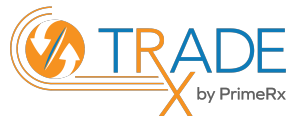Reporting on a New England Journal of Medicine column, High-Cost Generic Drugs — Implications for Patients and Policymakers, CBS News shined a very bright light on how the lack of competition for some generic drugs has led to skyrocketing prices.
NCPA surveyed pharmacies on the issue in 2013 and reported that 77% of pharmacists noted a rise in generic prices at least 26 times in the preceding six months.
As I reported last month in a blog post focused on medication adherence, congress has taken an interest in the generic drug wholesale price crisis. CBS News reports that a Senate hearing on the matter will begin next week.
In responding to a question from CBS News, Dr. Aaron S. Kesselheim, one of the authors of the NEJM article, said,
“Everybody just assumes that generic prices are low. But generic prices are low because there is competition. So, once that competition goes away, for whatever reason, then you have very expensive generic drugs. These can be very expensive for patients.”
The issue at hand is that a number of drugs that many patients rely on have gone up in price by more than 1,000%.
Here’s the full video from CBS News, (including their commercial)
Consumers urged to compare prices
The subject of the CBS News report was able to find an alternative source for the medication she needed. In other words, she found a pharmacy that paid substantially less for the drug. This shouldn’t really be news.
Across the board, organizations from Medicare to WebMD to Consumer Reports to your local newspaper urge patients to compare and find the best pries for their prescriptions. Medicare even provides an online application that allows patients to enter their prescriptions so it can report the least costly supplemental plans for them.
This raises one very big question…
Are pharmacies doing all they can to get the lowest prices?
With patients now actively comparing retail drug prices, pharmacies that fail to compare wholesale drug prices are making themselves less competitive.
The good news, as evidenced by the now 2,400+ TRxADE members, is that more and more independent pharmacies are comparing supplier prices and paying less. But that is still less than 10% of all independent pharmacies in the United States. What are they missing?
Consider Doxycycline Hyclate. As the graphic at the top of the page shows, from November 2012 to November 2013, the National Average Drug Acquisition Cost of Doxycyline Hyclate increased from 6.3 cents to $3.36 a pill.
Today, in TRxADE’s Opportunity Buys, a member pharmacy can purchase a package of 500 Dioxycycline Hyclate tablets (100mg) for as little as $705 ($1.41 per pill), a savings of $184.79 over the current Pharmacy Acquisition Cost (PAC).
Join TRxADE and give yourself every opportunity to remain price competitive on high-price generics.
The key is to consistently comparing the competition. We know that learning how best to use a new website can be time consuming, and even a little frustrating. TRxADE wants to make it easier for you.
Introducing TRxADE Tech Tips — making it easier than ever for you to compare prices
Because many of our members and email recipients are not the people who do the ordering in their pharmacy, we are launching TRxADE Tech Tips, a monthly guide to using TRxADE created specifically for the people who do the ordering in your pharmacy.
In TRxADE Tech Tips you will find the fastest and easiest ways to conduct different types of searches, manage orders, and sell overstock on TRxADE (where permitted by law).
